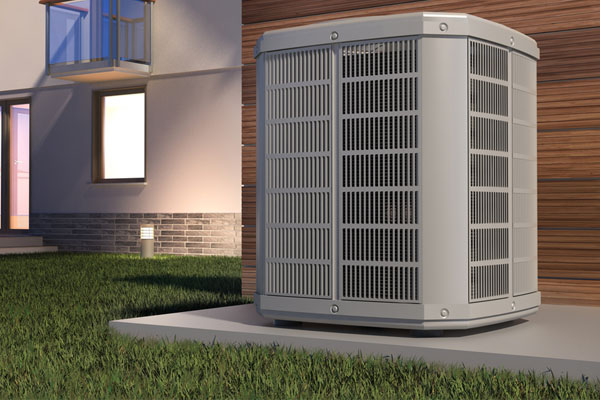Contents
- 1 Historical Background of Propane
- 2 Common Propane Myths
- 3 Debunking Propane Myths
- 3.1 Myth 1: Propane is Expensive
- 3.2 Myth 2: Propane Isn’t Environmentally Friendly
- 3.3 Myth 3: Propane is Dangerous
- 3.4 Myth 4: Propane Appliances Don’t Have Modern Features
- 3.5 Myth 5: Propane is Only Used for Grilling
- 3.6 Myth 6: Propane Storage Tanks are Ugly
- 3.7 Myth 7: Propane Depletes the Ozone Layer
- 3.8 Myth 8: Switching to Propane Requires a Complete Overhaul of Current Systems
- 3.9 Myth 9: Propane is Not Suitable for Large-Scale Operations
- 4 The Importance of Being Informed
- 5 Tips for Safe and Efficient Propane Usage
- 6 Call Tevis Energy For Superior Propane Delivery Services
Propane is a versatile and widely used energy source. It plays a pivotal role in countless aspects of modern life. From heating homes to fueling vehicles and cooking, its applications are diverse. However, misconceptions about propane often obscure its true value. In this article, we will debunk common propane myths and shed light on the multifaceted nature of propane. We will unveil its significance as a clean and efficient energy option for today’s eco-conscious consumers.
Historical Background of Propane
Propane’s historical roots date back to the early 20th century when it was first identified as a byproduct of natural gas/oil and petroleum processing or refining. Its significance as a clean and efficient fuel became evident during World War I when it was used to power vehicles and engines. It provided an alternative to gasoline. The growth of propane’s popularity continues today. As the environmental concerns of the 20th century emerged, propane gained favor for its cleaner-burning properties. It is a pivotal player in the transition to more eco-friendly energy sources.
Common Propane Myths

Myths surrounding propane fuel can be attributed to several factors. Its association with petroleum and natural gas often leads to misconceptions about its environmental impact. People often assume it is less eco-friendly than it actually is. Propane’s use in gas grills and recreational vehicles leads to misconceptions about its safety. Lack of awareness and education about the properties and benefits of propane contribute to these myths, making it essential to provide accurate information to dispel any unfounded concerns.
Debunking Propane Myths
Myth 1: Propane is Expensive
Propane prices vary by region and time. Propane prices are influenced by supply and demand, weather conditions, and market fluctuations. While there are instances when propane prices can spike, they are generally competitive when compared to other fuel sources.
Propane’s price stability and lower cost per energy make it an attractive option. Propane prices tend to be less volatile than gasoline, which can experience sharp fluctuations.
Propane is cost-efficient in specific applications. For example, propane furnaces are highly efficient in residential heating and can help homeowners save on energy costs. Propane is also used for grilling. The cost per grill session is often more economical than charcoal or electricity.
Myth 2: Propane Isn’t Environmentally Friendly

Propane is recognized for its low carbon content. It sets it apart from many other fossil fuels. When burned, it produces significantly fewer carbon emissions than other hydrocarbons like coal, oil, and natural gas.
Propane plays a major role in reducing greenhouse gas emissions. It is an essential part of the transition to more environmentally friendly energy sources. When used for heating, transportation, or power generation, propane releases lesser carbon dioxide (CO2) emissions. Carbon dioxide (CO2) emissions are a primary contributor to climate change. Its combustion emits lesser nitrogen oxides (NOx) and particulate matter as well, improving air quality.
Propane stands out for its lower greenhouse gas emissions compared to other fossil fuels. In residential heating, propane furnaces produce significantly lower CO2 emissions than heating oil and coal. Propane vehicles emit fewer pollutants than gasoline or diesel vehicles. This contributes to cleaner air in urban areas. Propane’s combustion process is more efficient, reducing overall emissions for the same energy output.
Myth 3: Propane is Dangerous
Propane safety is paramount, with guidelines for proper storage and usage. Storing propane tanks upright in well-ventilated areas, away from open flames or heat sources, is essential. Regular inspections and maintenance are crucial. Propane’s safety statistics are impressive. It has fewer accidents recorded compared to other household energy sources. It is non-toxic and has an unmistakable odor to detect leaks. With proper handling and adherence to safety guidelines, propane remains a safe choice for heating, cooking, and more.
Myth 4: Propane Appliances Don’t Have Modern Features

Modern propane-powered appliances offer exceptional efficiency and functionality. Propane stoves provide precise temperature control for cooking. Propane water heaters offer faster heating and consistent hot water. High-efficiency propane furnaces and boilers reduce heating costs and environmental impact. Propane fireplaces provide a cozy ambiance with minimal emissions. Propane appliances are reliable and often work during power outages. With lower energy costs, reduced greenhouse gas emissions, and dependable performance, propane-driven appliances offer homeowners an attractive and sustainable choice.
Myth 5: Propane is Only Used for Grilling
Propane is incredibly versatile. It finds use in numerous household and commercial settings. It is used for heating homes, cooking, fueling vehicles, and powering appliances like stoves and water heaters. In commercial applications, it is used for forklifts, generators, and as an energy source in industries ranging from agriculture to hospitality.
Myth 6: Propane Storage Tanks are Ugly
Innovative solutions for discreet propane tank placement are essential for maintaining the aesthetic appeal of homes and businesses.
Landscape-friendly tank designs include the use of decorative covers, such as faux rocks or fencing. These allow the tank to blend seamlessly with the surroundings. Concealing tanks with shrubs, bushes, or small structures is another option. For a more concealed approach, underground propane storage is a preferred method. Tanks are placed underground and covered with soil or decorative materials. This makes sure the tank is out of sight while remaining easily accessible for refilling.
Myth 7: Propane Depletes the Ozone Layer
Propane’s environmental impact stems from its combustion. It emits carbon dioxide (CO2) and minimal air pollutants. Unlike CFCs, which are notorious for ozone layer depletion, propane does not contain chlorine atoms that harm the ozone layer. While it contributes to greenhouse gas emissions, its impact is far less destructive compared to substances like CFCs.
Myth 8: Switching to Propane Requires a Complete Overhaul of Current Systems
Converting appliances to run on propane is often straightforward, as many modern models come with dual-fuel options. The process usually involves a qualified technician replacing or adjusting burners and regulators. Costs for conversion vary but can be economical. Integrating propane systems can involve tank installation and piping. The costs depend on the scale of the project.
Combining propane with other energy sources in hybrid systems is a promising approach. For instance, propane can serve as a backup to solar or wind power. These adaptable solutions offer flexibility and energy resilience.
Myth 9: Propane is Not Suitable for Large-Scale Operations
Propane is widely used in industrial applications, including forklifts, industrial ovens, metal cutting, and as a backup power source. It is renowned for its efficiency, with an energy density of 2,516 BTU per cubic foot.
Large-scale industrial propane usage significantly reduces operational costs. In comparison to other fuels like diesel or natural gas, propane offers better cost savings, making it a preferred voice for industries aiming to balance efficiency and sustainability.
The Importance of Being Informed
Misconceptions can influence decision-making, especially in matters like energy choices. Misinformation can lead individuals and businesses to make suboptimal or unsustainable choices, affecting their environmental impact. Accurate information is crucial for informed decisions that prioritize eco-friendly options and reduce the impact on the environment.
Tips for Safe and Efficient Propane Usage
Proper storage and maintenance are key for safe propane usage. For households transitioning to propane or already using it, make sure tanks are stored in well-ventilated areas. Routinely inspect for leaks and schedule professional maintenance.
Staying informed about the latest research, information, and technological advancements in propane appliances and systems can optimize efficiency, safety, and sustainability. It allows consumers to make the most of this versatile and eco-friendly energy source.
Conclusion
Understanding the facts about propane is vital, given its widespread applications and eco-friendly attributes. Separate facts from propane myths and make informed decisions. Being informed empowers consumers to harness the benefits of propane efficiently and make eco-conscious decisions. You can contribute to a cleaner, safer, and more sustainable future while enjoying the many advantages propane has to offer.
Call Tevis Energy For Superior Propane Delivery Services

For top-notch propane delivery services in Central Maryland and South Central Pennsylvania, call Tevis Energy. Our fuel deliveries are known for speed, affordability, and friendly service.
With Tevis Energy, you can expect consistently exceptional service. Contact us today to explore our various delivery plans and financing options. We offer customization to meet your specific delivery needs. Don’t wait; give us a call now!
We also provide a wide range of heating and cooling services to enhance your home’s comfort, indoor air quality, and energy efficiency. Our services include HVAC tune-ups, repairs, installations, and much more. Call us today!
You can click here to contact us now or call us at (410) 876-6800 to find out more! Click the link to view our service area.
Related Articles:
Posted in Blog
Tags: